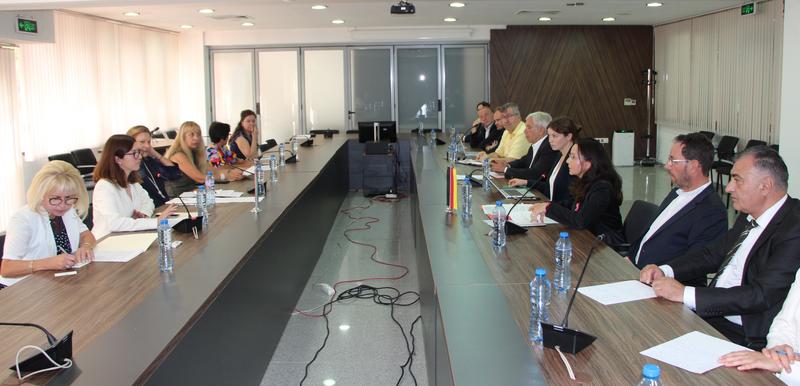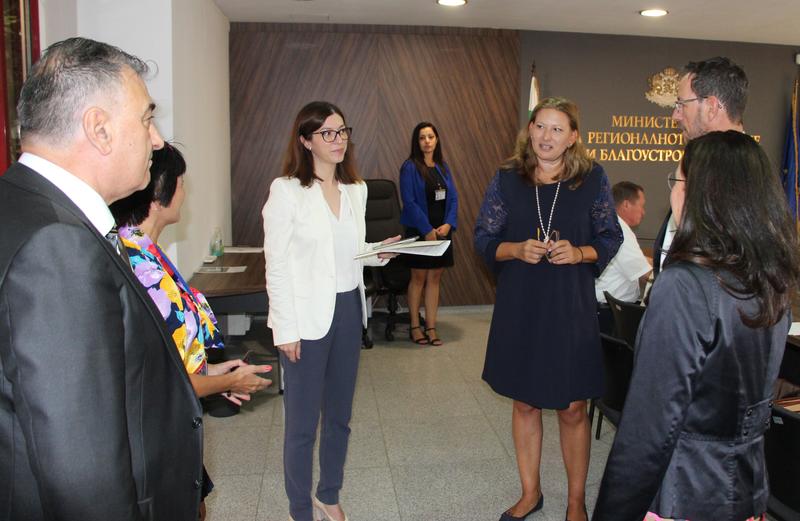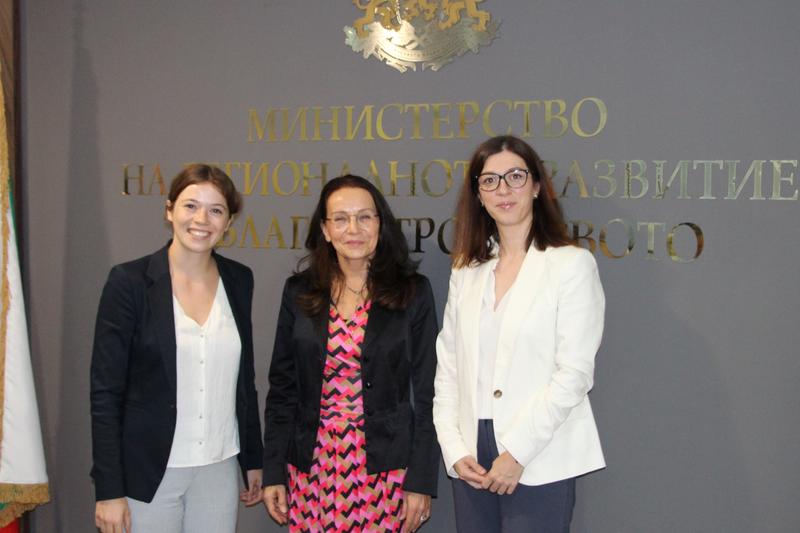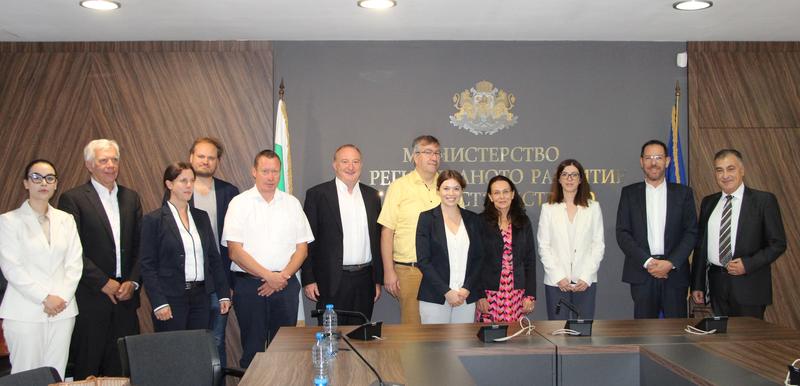The Ministry of Regional Development and Public Works will facilitate the establishment of partnerships with the Federal State of Baden-Württemberg in the field of the bioeconomy for the development of Northwest Bulgaria
The Ministry of Regional Development and Public Works will facilitate the establishment of partnerships with t
By Ministry of Regional Development and Public Works
Opportunities for cooperation for investments in the field of renewable energy sources in Northwest Bulgaria, strengthening supply chains between the countries along the Danube and the implementation of joint projects with European funding. This was discussed by the Deputy Minister of Regional Development and Public Works Desislava Georgieva and the Head of the Political Office of the Ministry Julia Ivkova with a delegation from the German federal state of Baden-Württemberg. The meeting took place in the context of the long-standing successful partnership between the German province and Bulgaria as well as the joint activities within the Danube Strategy. Among the members of the delegation were Ms. Carmen Hawkins - official representative of the Ministry of Economy, Labour and Tourism of the Province of Baden-Württemberg, Chief Coordinator of Priority Axis 8 of the EU Strategy for the Danube Region, Professor Dr. Ralf Kindervater - CEO of the FRG’s state agency for the bioeconomy BIOPRO, Mr. Robert Gohla - Project Manager at Steinbeis Europa - European Expert Network for Innovation, Applied Research and Technology Transfer, the Mayor of Spaichingen Mr. Markus Hugger, representatives of state and scientific institutes, federal associations and businesses.
The German delegation presented an idea for an investment in the construction of a biomass thermal power plant in the Vidin area, which would produce energy from agricultural waste and plantations of so-called “elephant grass” The aim is to obtain clean, “green energy” by utilizing the residues of crop production in Northwest Bulgaria. According to German experts, they are currently burned in the fields, generating harmful gases, and are a valuable raw material whose potential should be exploited through modern technology. The waste material from the plant will be reused in agriculture as a soil conditioner. The elephant grass plant can also be used to produce paper, fodder, pellets, etc., the meeting was told. The project brings with it many economic, social and environmental benefits as it produces climate-neutral fuels, the experts said.
Deputy Minister Georgieva noted that the Bulgaria-Baden-Württemberg Joint Intergovernmental Commission is an effective instrument for intensifying and expanding cooperation in the field of regional development, attracting investments, small and medium-sized enterprises, innovation and digitalization. She stressed that in the current situation of an uncertain energy market, rising prices and the EU’s commitments to “greening” production make the role of renewable energy sources as an alternative to guarantee the stability of economies crucial.
“You can count on the full cooperation of the Ministry of Regional Development and Public Works to partner with local and central government, as a successful investment of this scale would have a positive impact on the economic development of the region, which is one of the poorest in the EU. The implementation of transnational projects with high added value within the framework of the Danube Strategy is of strategic importance because these projects are visible to people and improve their way of life,” said Deputy Minister Georgieva. She added that this could be a good new platform for cooperation and exchange of experience and knowledge.
Georgieva drew attention to the fact that the European programmes that Bulgaria is implementing in the period 2021-2027 aim at integrated territorial development of all regions in the country, promoting partnership between local authorities, business, the scientific community, civil society and the non-governmental sector. The aim is to support project ideas that would bring the greatest added value and raise the standard of living in localities. In this respect, the biomass power plant project could also receive European funding on the basis of partnerships. Moreover, it falls within the hypotheses of the priority areas of green economy, connectivity and economic development.








